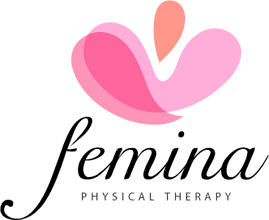The medical community has a new acronym for painful sex - GPPD
New data on self-compassion and emotion regulation that many women who suffer from it may never have considered.
First, let’s take a look at that new name - genito-pelvic pain/penetration disorder (GPPD). That’s a medical mouthful, I know; but it’s actually a helpful attempt to simplify diagnosis by combining two similar disorders under one treatment heading. Dyspareunia is pain with sexual activity; vaginismus is the involuntary contraction of muscles in the pelvic floor that often cause that pain. GPPD recognizes them as essentially the same problem – recurrent or persistent pain in the genital area associated with intercourse. And it’s a common one; the study I’m reviewing in this article says,
Sexual pain is among the most common complaints in women who seek for help in clinical settings.”
And the American College of Obstetricians and Gynecologists Agree – citing that 3 out of 4 women will experience painful intercourse at some point in their lives.
\When I first began studying women’s health physical therapy, it was a real struggle to get the medical community to embrace the idea that the pain was real. These days, we know that an entire laundry list of physical factors – infection, injury, birth trauma, hormonal changes – can cause or contribute to the physical pain. The new frontier of GPPD research offers us important details about the psychosocial risk factors – a wide range of issues from various types of abuse and trauma to extreme religiosity to anxiety, depression, and even the way our brains are wired to view negative experiences.
The earlier focus on data about the physical aspects and causes of GPPD was invaluable in helping us understand how to treat it.
Can the new focus on the psychological aspects – and on common psychological wellness techniques – do the same for GPPD?
That’s what a research team in Portugal wanted to know; so they studied more than 200 women to find out if there was a link between sexual pain, self-compassion, and emotion regulation. Their survey questioned three types of sexually active adult women – those who reported sexual pain, those who indicated some other kind of sexual dysfunction, and sexually healthy women who said sex was pain-free. The researchers asked all of them questions about their sex lives as well as about how they viewed and treated themselves.
It probably won’t surprise you (and didn’t surprise the team) to find that women in the first two groups lacked self-compassion and had a hard time regulating emotions. But their more specific findings are worth a read – for all women, but especially those suffering from painful sex.
Self-Compassion is never the problem.
If I had a dollar for every tearful patient or social media follower who told me they’d gotten well-meaning advice (even from doctors) to ‘power through the pain’, ‘be an adult’, or ‘just get over it’, I could retire and offer all my services for free. I’m thrilled that this hard data puts those toxic recommendations to rest. The survey shows women who suffer from sexual pain aren’t avoiding the problem, at least not internally. They offered far less kindness and understanding to themselves than they did to others who were suffering or had some perceived inadequacy. What’s more, they tended overwhelmingly to view their GPPD related pain as a personal failure rather than a condition that all humans face at some point through no fault of their own. Clearly, those of us in the medical community have some work to do in supporting patients; but this is hopeful news for every woman who has ever been led to believe that they could overcome sexual pain just by being harder on themselves.
Emotion regulation may not be what you assume it is, either.
The women who struggled with painful sex in this study had a higher difficulty sticking to goals and controlling impulsive behavior during negative experiences… but to some extent, that’s human nature. In particular, these women also had a hard time simply accepting their own emotional responses. In other words, the more they told themselves (or listened to someone else tell them) how and what they should feel about their sexuality, their pain, and even the healing process, the worse they felt when authentic emotions surfaced… and the less able they were to use coping strategies that had been helpful to them in the past.
Seeking Treatment for GPPD
GPPD (dyspareunia, vaginismus) is one of the sexual dysfunctions we specialize in at Femina PT. Our expertise goes beyond some of the most highly trained women’s health physical therapists in the country; your entire experience with every team member offers the compassionate and professional support you need to heal, from the very first phone call. Painful sex is a physical, treatable condition – but how you’re treated, and how you treat yourself, can optimize your healing.
References:
Vasconcelos P., Oliviera C., and Nobre P. 2019. Self-Compassion, Emotion Regulation, and Female Sexual Pain: A Comparative Exploratory Analysis. The Journal Of Sexual Medicine 17:2 289-99.










